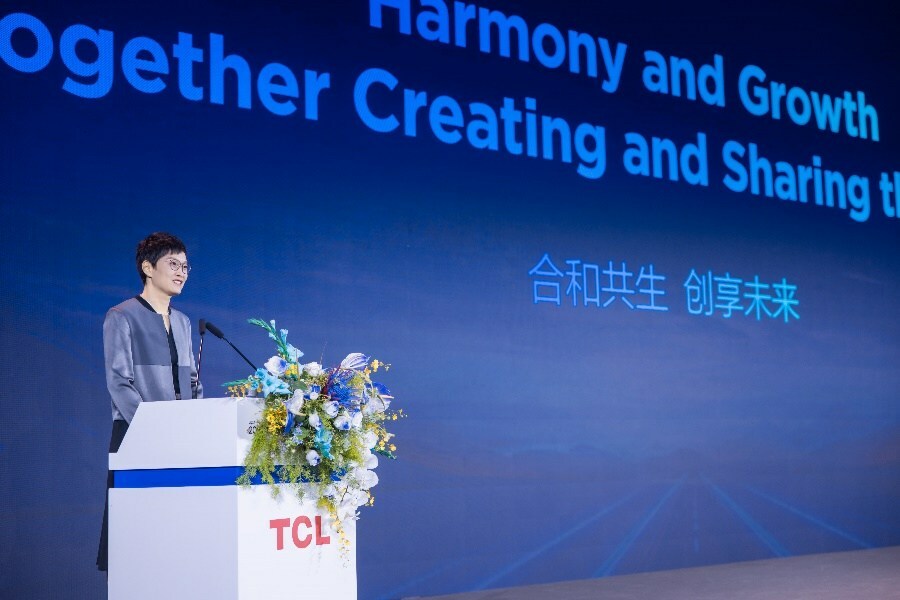HONG KONG, May 7, 2024 -- Hong Kong Productivity Council (HKPC) and HP signed a collaboration agreement (agreement) today to establish the HKPC-HP 3D Printing Technology Centre (Centre) in Hong Kong for application research development on additive manufacturing, also known as 3D printing. The Centre aims to become a pilot transformation base, applying advanced 3D printing technologies to empower various industries, sharpen their competitive edge, and foster the development of high-value strategic industrial chains. It will also accelerate Hong Kong's pioneering effort in micro-factory and new industrialisation development, offering important references and inspiration worldwide in the pursuit of innovative and sustainable development.
The Centre will be located in the HKPC Building, being the first in Asia to be equipped with both HP's research version of "Metal Jet" and "Multi Jet Fusion" industrial 3D printers. HP will bring advanced equipment and talent to support the operations of the Centre, and HKPC will contribute expertise in raw material development, process development, and smartification. Market research data estimate that the value of the 3D printing industry will reach US$186.4 billion by 2033, a significant increase from US$27.7 billion in 2023, indicating the immense market potential.
Clean, digitally powered 3D printing generates minimal waste and a minimal carbon footprint. This aligns with global goals of achieving green and sustainable development, while also promoting long-term economic growth through sustainable industries. At the same time, advanced 3D printing provides significant opportunities in strategic industries, such as healthtech, critical components, electronics, and more. In the future, the Centre, with its focus on customisation and precision, can be a game-changer in meeting the demand for hard-to-source parts, complex structures, patient-specific implants, and other tools. This will enable enterprises, especially small and medium enterprises (SMEs), to leverage advanced 3D printing technology and produce high-value, customised goods that can respond to market-specific demands in real-time, offering new levels of flexibility and efficiency that conventional factories are unable to meet.
In the ceremony, Professor Dong SUN, JP, Secretary for Innovation, Technology and Industry, HKSAR Government, said, "3D printing enables the development of more micro-factories in Hong Kong. Compared to the traditional one, micro-factories require less land and materials, generate higher efficiency but less waste. This best suits Hong Kong's condition, where land resources are limited and labour costs are relatively high. The establishment of this 3D printing technology centre is undoubtedly a good answer to show how we make use of state-of-the-art technology to promote advanced manufacturing and new industrialisation in Hong Kong. I am confident that Hong Kong's manufacturing industry will reach new heights, and 'Made in Hong Kong' will continue to be a reputable and brilliant international brand. I look forward to more representative technology companies from all around the globe, such as HP to team up with our I&T quangoes, such as HKPC, bringing talents, technologies and machinery to Hong Kong to redefine Hong Kong's manufacturing industry and drive high-quality economic growth."
Hon Sunny TAN, Chairman of HKPC, said, "We're very pleased to form this research collaboration with HP, underscoring the confidence that global technology firms have in Hong Kong's strengths in innovation. As an international innovation and technology centre, Hong Kong can be a paragon of the micro-factory city of the future that provides Hong Kong's answer to develop new productive forces and set a fine example in Asia and across the globe to pursue innovation-driven, sustainable development. Hong Kong's unique conditions make it particularly suitable for the development of micro-factories. The vibrant ecosystem in Hong Kong, combined with the robust supply chains in the Guangdong-Hong Kong-Macao Greater Bay Area, will provide an excellent pilot transformation base for the development of micro-factories, with significant implications for economies in Asia and worldwide."
Mr Ramon PASTOR, Global Head of 3D Metals at HP Personalisation & 3D Printing, said, "It's truly exciting to witness the launch of this collaborative effort between HKPC and HP, which aligns perfectly with our vision of leveraging Additive Manufacturing to drive industrialisation. This initiative not only showcases our dedication to technological advancement but also our shared vision for propelling industry innovation forward. HP believes in the immense potential of Hong Kong's technology sector. We are also glad to bring in Pro-Technic Machinery Ltd. (Pro-Technic) to provide local support for our collaboration with HKPC."
The Centre is planned to open in September, serving as a networking hub to promote closer collaboration among academia, research institutions and industries, empowering diverse sectors to grasp market trends. In addition to application development, the Centre will also provide consultancy and training services, driving advancements and propelling the 3D printing industry, as well as other industries utilising 3D printing technologies, forward.
 This News is brought to you by Qube Mark, your trusted source for the latest updates and insights in marketing technology. Stay tuned for more groundbreaking innovations in the world of technology.
This News is brought to you by Qube Mark, your trusted source for the latest updates and insights in marketing technology. Stay tuned for more groundbreaking innovations in the world of technology. 








